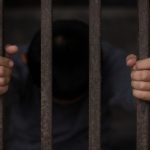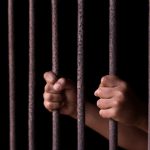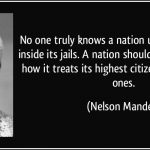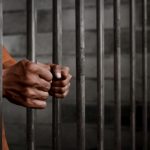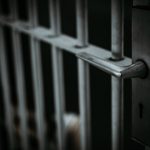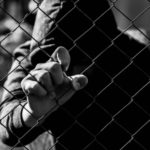Challenging WA’s Solitary Confinement Regime: An Interview With Dr Hannah McGlade

On 29 July, a WA Supreme Court challenge was lodged against that state’s practice of subjecting inmates to prolonged solitary confinement, which the main UN standards on prisoner treatment considers to be torture.
The challenge was on behalf of three 26-year-old First Nations men, two of whom were held in solitary for up to 23 hours a day for almost two months, while the third was subjected to the confinement for a total of six weeks.
The court documents revealed the men have mental health and/or physical disabilities.
This practice of prolonged solitary confinement is part of WA Corrective Services’ controversial disruptive prisoner policy, which was introduced in mid-2019, as an attempt to prevent dangerous inmates from influencing others.
However, since the lodgement of the civil action, the policy has been revoked, pending review.
Breaching protocol
One of the key criticisms of the disruptive prisoner policy was that it contravenes state laws. Section 43 of the Prisons Act 1981 (WA) stipulates that “the separate confinement” of a prisoner should not exceed 30 days.
Further, the UN Standard Minimum Rules for the Treatment of Prisoners defines solitary confinement as a detainee being isolated for “22 hours or more a day without meaningful human contact”. And prolonged solitary confinement consists of this treatment for more than 15 days.
Also known as the Mandela Rules, these international standards prohibit the use of prolonged solitary confinement, as it’s deemed torture. And it states that solitary confinement in general should not be used on people with disabilities, women and children.
Systemic racism
The average daily number of First Nations inmates in the WA prison system in March this year was 2,779, which accounted for 39 percent of the total adult prisoner population in that state. However, Aboriginal people only account for about 3 percent of the overall populace.
Not only do these figures reveal an extreme bias in the WA criminal justice system, but they also convey that a government policy which permits treatment defined as torture under international standards is an issue that disproportionately affects Aboriginal communities in the region.
Curtin University senior research fellow Dr Hannah McGlade and Roe Legal principal Paul Sheiner were behind the Supreme Court challenge to the solitary confinement regime.
The pair are now focused on seeking compensation for the victims of the government policy.
Sydney Criminal Lawyers spoke to Noongar woman Dr McGlade about the impact prolonged solitary confinement can have, the systemic racism within the WA criminal justice system, and why the case for justice reforms is dire.
Firstly, you lodged a court challenge to a policy recently implemented by the WA Department of Corrective Services, which involved disruptive prisoners being placed in solitary confinement for up to two months. Dr McGlade, how did that go?
The case had a good outcome, because the department didn’t want to argue the matter in court, and they immediately ordered a review of the policy.
They also released all prisoners being held under the policy.
The action was being taken on behalf of three Aboriginal men. What sort of effect did this have on them?
It had a severe effect on their mental health, in particular. They already had mental health issues, with traumatic childhoods: being in the out-of-home care system with the loss of their parents.
They felt quite affected by it. And the evidence is clear that solitary confinement is very harmful from a psychological and a physical health perspective. It can result in psychosis and depression, as well as the risk of suicide.
That’s why it’s an important issue that Australia needs to address. We seem to have this happening in Queensland as well. It’s clearly a severe human rights violation.
People shouldn’t be put in prison and become unwell. Prison is supposed to be rehabilitative. You are not supposed to be subject to regimes that can cause you lifelong disability.
WA Corrective Services initially responded to the lodgement of the challenge by asserting that those subjected to the practice were treated fairly and humanely.
What did you think about this response coming from the department?
It’s not fair and humane to put people in solitary confinement for such extensive timeframes. We’re talking about two months. But we found another prisoner, a young man, detained for seven months.
It’s not humane to put someone in a cell by themselves for 23 hours out of 24 and let them exercise in a caged area by themselves.
The is a form of torture. The UN Special Rapporteur on Torture has made it clear that any use of solitary confinement past 15 days is completely unacceptable. And it should never be used on people who have disabilities.
So, they’re showing utter disregard to human rights law that we’re bound to respect. And they’re absolutely ignorant that the medical knowledge is clear that it’s an extremely harmful practice.
The overrepresentation of First Nations people in the Australian prison system is stark. Would you say that in the state of WA, an issue such as this policy becomes an Indigenous issue from the onset?
Yes, because we have a problem with a high level of racial prejudice and discrimination in Western Australia. That has historically been the case, and it’s ongoing to this day.
Even though the policy was announced as a means to control the bikie gang element – which Aboriginal people are not known to particularly be associated with – it seemed that the majority of the prisoners then being affected by the policy were Aboriginal.
The issue of systemic racism in the Australian criminal justice system has recently been front and centre. And during this time, there have been three Aboriginal deaths in custody in WA.
How would you describe the treatment of First Nations people within the WA criminal justice system?
Appalling, racist and in dire need for reform. We are calling out for reform. Our people are dying because of this lack of care and attention. It’s really sad to see.
We have Aboriginal ministers now at the federal and state level, who are not showing the leadership that’s required.
We need to see the implementation of the ALRC inquiry Pathways to Justice to address Indigenous offending. We are not seeing a proper response to that.
One of its key recommendations was that all states should re-establish the Aboriginal Justice Advisory Committee, which was recommended by the Royal Commission into Aboriginal Deaths in Custody. We haven’t had that happen in West Australia.
Our government has promised to reduce the incarceration of Indigenous people by one-third, but they haven’t worked with Aboriginal people, yet, to develop a plan as to how we will realistically make that happen.
We do need to urgently repeal mandatory detention laws, which are disproportionately impacting Aboriginal people, particularly young people.
Being in the East Kimberley at the moment, we understand that the young police officers from the academy are being sent here, and that’s really wrong of the WA police commissioner to be doing that.
Officers are throwing the book at the local people, with lots of charges. This doesn’t need to happen. But they don’t get the benefit of any white skin privilege here.
And they can be incarcerated as a result, because three strikes will leave a judge with no discretion other than to incarcerate.
It’s really shocking. It certainly is racism. It certainly is about inequality in Australia today. And it highlights why Black Lives Matter is of such relevance in Australia.
And lastly, Dr McGlade, the challenge to the WA solitary confinement regime was successful. What’s next from here? What other changes would you like to see in relation to solitary confinement?
The WA Prisons Act still allows the use of solitary confinement for up to 30 days. The prisons are using this consecutively to incarcerate a person for more than 30 days.
We have to amend this law to make it consistent with UN standards. That’s going to be a difficult battle, because we’ve had an appalling minister, who has just resigned. So, let’s hope the next one can do better by Aboriginal people.
And we want to have the prisoners compensated for this unlawful incarceration experience that has harmed them. We are seeking compensation orders now.


